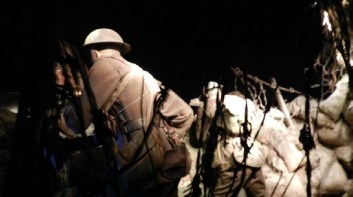Ken Purdham
Bachelor of Arts History & Politics
Diploma of Professional Writing & Editing
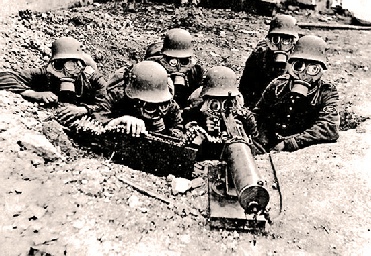
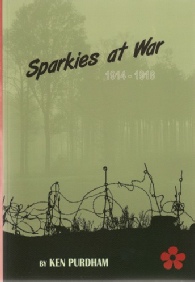
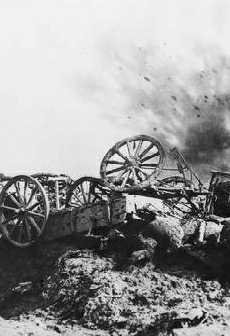
Fallen Comrades
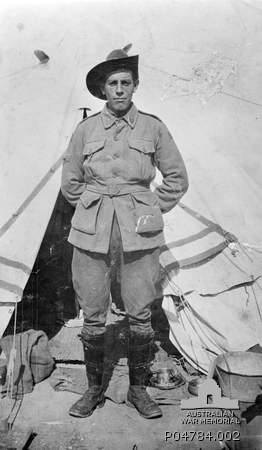
As a young bloke, Owen played footy for Footscray and won the reserves Best and Fairest. He studied at the Working Man's College, now RMIT, got himself an apprenticeship with an electrical contractor, R H Row & Co and, in 1913, joined the ETU. It was all good for this young electrician. Then Australia went to war and he answered the call.
The ETU's Owen Hughes is one of those soldiers who survived the Great War; now, one hundred years on, here's a glimpse of the price he paid for answering that call.
A true Anzac, Owen charged onto the Gallipoli Peninsula, was wounded, recovered, then was hit by shell shock. Writing to his mates at the footy club he said;
At present I am in hospital with a bit of a wound on the head, but it is nothing at all and I am waiting to be discharged. By the time you get this letter you will have heard of us going into action and the brilliant charge that the boys made. I can tell you it was something marvellous. I will never forget it...We landed on the battleground on Sunday morning and the firing of the big guns was something awful... I am sure we all got to see war at its worst for the first time. The first bit of shrapnel that I got was in the back, but that only gave me a bit of a fright. But the second one knocked me over. I got a bit of a crack on the head and the next I knew I was in the boat going hell for leather to the hospital ship... I am quite well again, new and hardly a scratch. It took my head only a few days to heal up and here I am locked up in the hospital with very little chance of getting back for a while... but all the same, I would sooner be back with the boys because there is tons of work to be done...
He did get back and went tunnelling under the Turkish lines at Lone Pine where an explosion buried him. The Turks grabbed his legs and tried to pull him over to their side but his mates fought them off and got him back behind Aussie lines.
Owen survived and his courage carried him from Gallipoli to the Western Front in
France. At the Front, he was wounded twice more, was sent to England to recover,
court-
...his mother was told he'd "had his face blown off". She ended up jumping off the
Footscray Road bridge into the Maribynong-
Owen hadn't had his face blown off, but he did have to pick up the pieces. Returning to H R Row and Co, he found Frank McCoubrie the apprentice who followed him into war, and had been buried alive at Bullecourt. In his workplace, only Owen could know and understand the horrors in which Frank had lost his life.
Owen married Mary Watson in 1920, a Footscray girl with five brothers, four who had also gone to war and who had fought alongside her new husband. Two were killed and two returned only to suffer from the after effects.
But the newly married Owen and Mary wanted a family. They tried, lost two children
and so adopted a boy Kevin. Then two girls were conceived naturally Veronica-
He joined the VDAC in the Second World War and as Greg understands it;
I think that was just to keep in touch with his mates. He joined the RSL and caught up with his mates on a regular occurrence.
Owen left Rowe and Co to take his electrical skills to work with the William Anglis Institute in Picket Street Footscray where he worked until he retired at 68 years of age.
Even though Owen Hughes continued to suffer from the experiences of war he did settle into family life and along with Mary had a wonderful influence over the family they produced. Greg proudly testifies;
My dear old Mum and Dad done a fantastic job of raising 11 kids and keeping them
all out of trouble. I'm sure the influence of Grandpa-
As Greg thinks back he remembers; He was a great gardener and kept a fantastic house in Birdwood street. It's still there, which is pleasing. Owen Hughes was born in 1889 and died in 1968.
Some time ago, WW1 researcher Lamis Engazos asked me if we had any ETU members lost in the 2nd battle of Krithia on the Gallipoli Peninsula. Yes, I said, Harry Parker. Lambis is pretty sure he’s found a mass grave that could contain AIF soldiers.
His asking got me thinking again, not only of Harry, but all our ETU members who fought in that war and it caused me to look back at Fallen Comrades.
Lest we forget in that war, or any other for that matter, is something we say all too often without being able to think of the individuals. In the ETU’s Fallen Comrades, we do remember the individuals. If only they could have only known, that more than a hundred years on, we would still be honouring them by speaking their names and valuing their sacrifices.
In this short history we track the journeys of all the ETU members who fought in the Great War. When Australia called they closed up their toolboxes and set sail on what many thought was just an adventure that would be over by Christmas.
Most of them were just young blokes who could never have imagined the horrors they were sailing off to and for those who came back the horrors that came back with them.
Owen Hughes is just one of those union soldiers who came back.
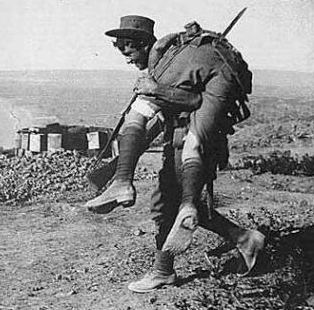
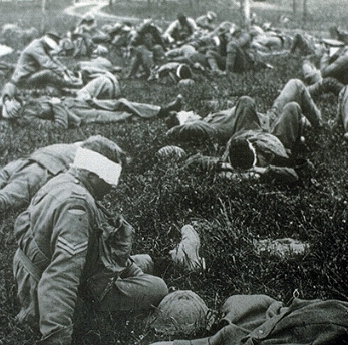
Owen Hughes
